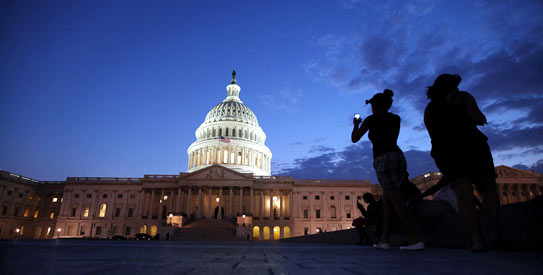
ISLAMABAD: In the aftermath of the secret US raid to kill Osama bin Laden, Pakistani officials want a detailed agreement spelling out US rules of engagement inside Pakistan, officials in both countries say, but Washington's refusal to sign a binding document threatens to create another point of friction in the long-troubled relationship.
Pakistan military officials want the US to sign what is called a ''memorandum of understanding,'' an agreement they want to include such details as the number of CIA operatives working in Pakistan, notification before US drone strikes, intelligence gathered and a written promise about Pakistan's role if al-Qaeda's new leader, Ayman al-Zawahri, is found in Pakistan.
''There can be no more gray areas,'' said a senior Pakistani military official who, like others, spoke on the condition of anonymity because they are not permitted to speak publicly about diplomatic negotiations.
The surge in trouble this year between Pakistan and the US began with the February killing of two Pakistanis by Raymond Davis, a CIA-contracted American spy working without Pakistan's knowledge.
The bin Laden raid further infuriated the Pakistani military, which saw it as a violation of Pakistani sovereignty, and it now feels it needs the agreement to ensure it would be involved in —or be able to stop —any similar US attacks in the future.
The agreement would also allay fears in Islamabad that the CIA is operating behind Pakistan's back, and shore up the military's reputation, which was badly battered when the US helicopters slipped into Pakistan air space undetected for the bin Laden attack.
But former and current American officials say the US will not commit any specifics to paper because it could limit the flexibility of its operations.
Instead, the US is preparing a broad statement of principles that could be completed in the coming weeks.
''There will not be a (memorandum of understanding) covering all aspects of the relationship with annexes spelling out permitted behaviors,'' said a senior US official.
''There is, however, the possibility of a brief bilateral statement of principles that would identify common interests and goals.''
Another senior US official said that while Pakistan would not get all the information it wants about US intelligence operations, it gets much more than Washington gives most other countries.
Similar negotiations are taking place between the US and Afghanistan, with Afghan officials seeking detailed guarantees on the future of US troops and aid, but Americans insisting on a vague agreement.
In Pakistan, the US is negotiating with the civilian government, it's not clear whether the country's powerful military establishment would veto a broad statement of principles.
Relations between Pakistan's spy agency, the ISI, which falls under the military command, and the CIA hit rock bottom after the bin Laden raid.
Pakistanis were particularly angered by then-CIA Director Leon Panetta's stinging comments the ISI was either incompetent or complicit in not finding bin Laden, who was hiding not far from Islamabad.
Two senior Pakistani officials, including a former security officer, said Panetta sought to assuage Pakistan Army Chief Gen. Ashfaq Pervez Kayani with an apology following those statements.
Yet Panetta's words continue to reverberate. Pakistani officials fret that there were will be repeat of the bin Laden raid if al-Zawahri is found in Pakistan.
They also worry about the new director of the CIA, David Petraeus, who Pakistani officials say has a frosty relationship with Kayani.
Petraeus wanted the ability to take the fight into Pakistan while serving as military commander in Afghanistan, according to a Pakistani official says and a former senior US official.
Now that he has the authority to run covert operations at the CIA, the Pakistani official says his government fears he might decide to ramp up unilateral operations in Pakistan.
Without an agreement, Pakistani officials say there were will only be an atmosphere of distrust.
But US officials counter that while relations have sunk very low, the CIA and the ISI have never stopped sharing intelligence, with one saying the relationship is getting ''incrementally better.''
They point to information sharing with the FBI from local law enforcement after the Aug. 13 kidnapping of an American in the Pakistani city of Lahore.
And on important fronts like securing Pakistan's nuclear weapons, the US and Pakistan continue to cooperate.










































